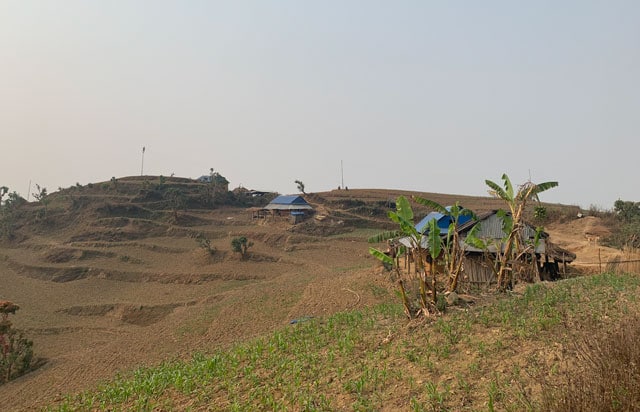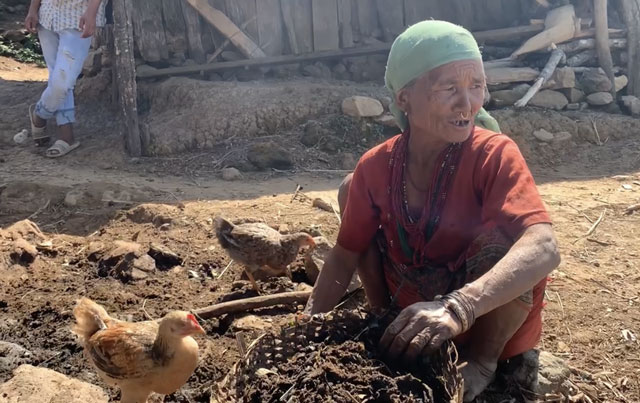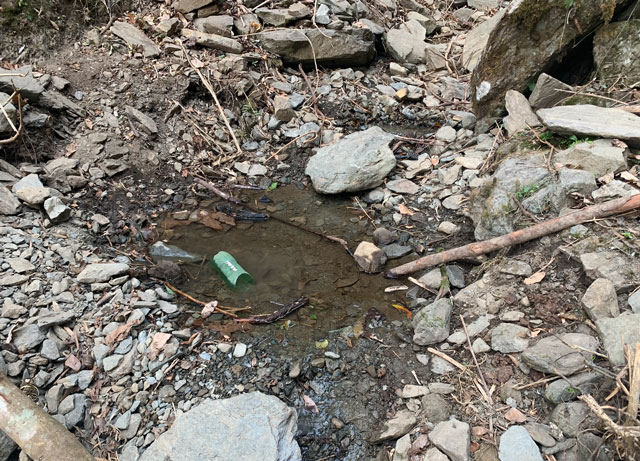Imagine what it’s like to not have running water in your home. There’s no way to wash your hands or bathe. A toilet is nonexistent. You rely on whatever moisture falls from the sky to replenish your crops and hydrate livestock. It’s a precarious life—and with a hotter, drier climate, the risks are even higher.
This isn’t a hypothetical situation. For people all over the world, water scarcity is a real problem with serious implications. In Nepal, the situation is particularly dire; according to UNICEF, 3.5 million people across the country don’t have access to basic water services. Among the most vulnerable communities are the Chepang people, an Indigenous group living in remote hillside villages in Nepal’s Makwanpur District. Without a way to pipe water into homes or irrigate crops, Chepang community members (most often young women) are required to hike miles across treacherous terrain to increasingly scarce water sources, carrying heavy jugs of water on their backs.
Elevate Nepal’s Sanitation & Potable Water focuses on these Chepang communities. There are several reasons our organization selected this population to direct our efforts. For one, the Chepang, who are considered lower caste, are marginalized in Nepali society, facing rampant discrimination. Two, other non-profits and government agencies often neglect this group due to their remote, hard-to-access villages. In turn, the Chepang communities experience extremely slow development and disproportionately high rates of waterborne illnesses.

The Goal
Over 26 months, beginning in December 2021, Elevate Nepal seeks to bring potable water to three villages in the Makwanpur District. Timing is subject to change according to weather conditions as well as COVID-19 rates.
- Gopeghari
The first phase of our project will focus on Gopeghari, a cluster of 12 homes with 50 people. Currently, the only water source is a spring in a tight, narrow gorge, requiring an hour-long walk on a steep grade. We hope to bring 12 water taps, six toilets and electricity to this village. - Deurali
Our second phase will focus on Deurali, another small village in the Makwanpur hills. We plan to pipe water to individual homes and a local school, serving nearly 200 people. - Upper Dhusarang
The third and most ambitious part of our project will focus on Upper Dhusarang, where there are 40 hours and 215 people. We plan to pipe water to individual homes and bring electricity to the village.
The Execution
Over 26 months, beginning in December 2021, Elevate Nepal seeks to bring potable water to three villages in the Makwanpur District. Timing is subject to change according to weather conditions as well as COVID-19 rates.
Successfully bringing potable water to these areas in Nepal requires careful planning, collaboration with local officials, and adaptability to adjust to sometimes-unpredictable situations thanks to the COVID-19 pandemic and what can be a catastrophic monsoon season. We also work to get buy-in from community members, as on-going maintenance is crucial to the project’s success.
We will provide project management and funding. Additionally, we have contracted a Nepali hydroengineering company to design, construct, and oversee the implementation of the project. This company will be also responsible for offering training programs to the community.
Finally, employing local laborers creates ownership over the project and teaches transferable skills.
The Benefits
Clean water has numerous compounding benefits, from increasing life expectancy and school attendance to decreasing food scarcity and waterborne illness. Overall, quality of life improves, supporting long-term, sustainable development.

Beyond the direct, positive impacts on the Chepang people, this is also an ideal project for Elevate Nepal. It allows us to focus for multiple years on one area, building rapport with the community and learning more about their specific needs and goals. In the future, we’d like to expand our efforts to include establishing schools and medical camps, sustainable agriculture programs and much more. Ultimately, we want to create a model for our organization and others to replicate.
We have ambitious goals—and we can’t accomplish them alone. Let’s bring clean water to Nepal’s most underserved communities. We believe that in today’s world there is no reason for a child’s life to be cut short because of a preventable waterborne illness. You can help us prevent this tragedy and make a real difference in people’s lives.


